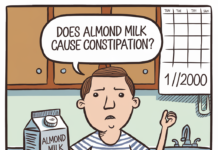Tripolar disorder is a lesser-known term that often raises questions about its meaning and relevance. While it may sound like a variant of bipolar disorder, it’s essential to clarify its context and implications. In this article, we will explore what tripolar disorder is, its potential significance, and actionable tips for understanding its nuances.
What is Tripolar Disorder?
Tripolar disorder is not a formally recognized term in the field of psychiatry but is sometimes informally used to describe a condition or concept involving three poles of emotional, behavioral, or psychological states. It might refer to complex mood disorders or metaphorical interpretations in various contexts.
Common Associations:
- Bipolar Disorder Comparison: Bipolar disorder involves two poles (mania and depression). Some suggest that “tripolar” may imply an added layer of complexity.
- Potential Misinterpretations: The term is not clinically defined but may be used metaphorically or creatively in literature, media, or informal discussions.
Why Understanding Tripolar Disorder Matters
Although not an established medical diagnosis, exploring concepts like tripolar disorder can:
- Encourage deeper conversations about mental health.
- Highlight the complexity of mood and emotional regulation.
- Foster awareness of unique psychological phenomena.
For those seeking clarity, it’s crucial to rely on credible mental health resources and professionals to address specific concerns.
Key Tips for Navigating Complex Psychological Concepts
1. Educate Yourself
Understanding terms like tripolar disorder starts with education. Trusted resources such as the National Institute of Mental Health or academic journals can provide insights into related disorders and emerging theories.
2. Avoid Misuse
Using informal terms like tripolar disorder should be done with care. Mislabeling or oversimplifying conditions can lead to misinformation and stigma.
3. Consult Professionals
If you or someone you know exhibits unusual mood or behavioral patterns, consult a licensed mental health professional for an accurate diagnosis and appropriate treatment.
4. Promote Awareness
Use opportunities to discuss mental health openly, emphasizing empathy and understanding over labels and assumptions.
Conclusion
Tripolar disorder might be an intriguing concept, but it underscores the importance of thoughtful dialogue about mental health. By focusing on accurate information, consulting experts, and promoting awareness, we can better understand the complexities of emotional well-being.
For more articles on mental health and wellness, visit https://orangelifemagazine.com/.




